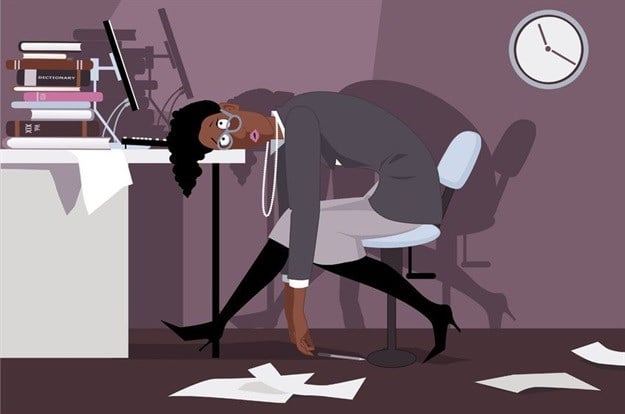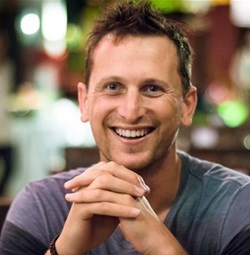#YouthMonth: Tips to avoid working overtime, enhance your creative flow

There’s no denying business is tough in 2018. Expectations are at an all-time high, so even those of us with the creative will to keep sparking fresh ideas are burning the candle at both ends, which eventually leads to creative burn-out. That’s a bad thing for you and your business, especially in this time of smaller margins and markets than before, where it’s imperative to work smarter, not harder.
Marcus adds that the true problem is that creativity requires time, and time is money. Here, Marcus and Hall share the secret to effective time management for creatives – whether you’re young in years or young at heart…
 Explain the concept of creativity as agency currency, especially in the context of 2018's economy.
Explain the concept of creativity as agency currency, especially in the context of 2018's economy.
Marcus: Typically, agencies will bill the client for their creative time on an hourly basis.
Creative time will normally include campaign concept development, design and copywriting.
Over-servicing on these tasks directly affects the profit margin of a job. In a creative agency, creativity is the core for generating revenue and as such can be classified as their currency – trading creative time for cash.
 How does time management apply to the creative industries, where the team often ends up working overtime to meet deadlines?
How does time management apply to the creative industries, where the team often ends up working overtime to meet deadlines?

Marcus: Time management is critical in creative industries. In my opinion, management of the team’s time is far too often left solely in the hands of the creative, who gets overloaded with tasks – way over his or her capacity – and is expected to deliver on deadline.
Hence the need to work overtime, which leads to overworked and tired creatives, in turn leading to a drop in creativity.
The operations and traffic teams are vital to ensuring time management is maintained throughout the agency. It’s critical that they have an in-depth understanding of how the creative team needs to spend their time and that they allocate work accordingly.
 There's no denying that lots of our best ideas come to us when we're away from our desks. What can creatives do to take advantage of this?
There's no denying that lots of our best ideas come to us when we're away from our desks. What can creatives do to take advantage of this?

Hall: I completely prescribe to this and, even though I’m no creative myself, I find that some of the best ideas come up at the most obscure times. However, I believe that in the creative environment, a good structure and process removes levels of anxiety and therefore creates a great environment for free creative thinking.
So with a good structure, a good process and clear direction, creatives can thrive, regardless of where they are.On the other side of the coin, with the above, we are able to run a fluid business in an industry that is desperate for more structure.
 Share a handful of tangible things agencies and marketers alike can do to up their creativity and also their productivity.
Share a handful of tangible things agencies and marketers alike can do to up their creativity and also their productivity.
Marcus: I find that following the “Big rocks in first” principle – popularised by author, businessman, and keynote speaker, Dr Stephen Covey – is a major driver in improving productivity.
Focussing on your big/inspired/creative tasks first will allow you to give these the required time, without feeling the end of day pressure. Having a clear view of the tasks ahead and a plan for the week frees up your mind to think less about what needs to be done, and focus on the task ahead. Much like Mark Zuckerberg who wears grey t-shirts every day to keep his mind clear of unnecessary decisions.
 What do you do if the client just doesn't like the ideas pitched, and you're all out of time?
What do you do if the client just doesn't like the ideas pitched, and you're all out of time? I also believe that if a client doesn’t like the output, they may very well like the thinking that got you there. If that is the case, it’s often easy to salvage the ideation very quickly. So, if you really are out of time and ideas, I see two possible avenues to follow:
- Assuming that either the client or agency has a crisis plan, now would be the time to act on it.
- Or, drawing on the partnership between client and agency, you sit together, and decide to jointly take ownership of the situation and decide on the very best way forward with the variables available (time, budget and resource). After that, you would set aside time for reflection and audit, to ascertain how to ensure there is never a repeat of this.
It speaks to meaningful relationships and strong partnerships.
There you have it. Seems proper time management, coupled with clear planning and strong partnerships, have the power to boost creative output. Be sure to follow
Marcus of Magnetic HQ and Hall of Hero on Twitter for their latest updates!
Read more



















